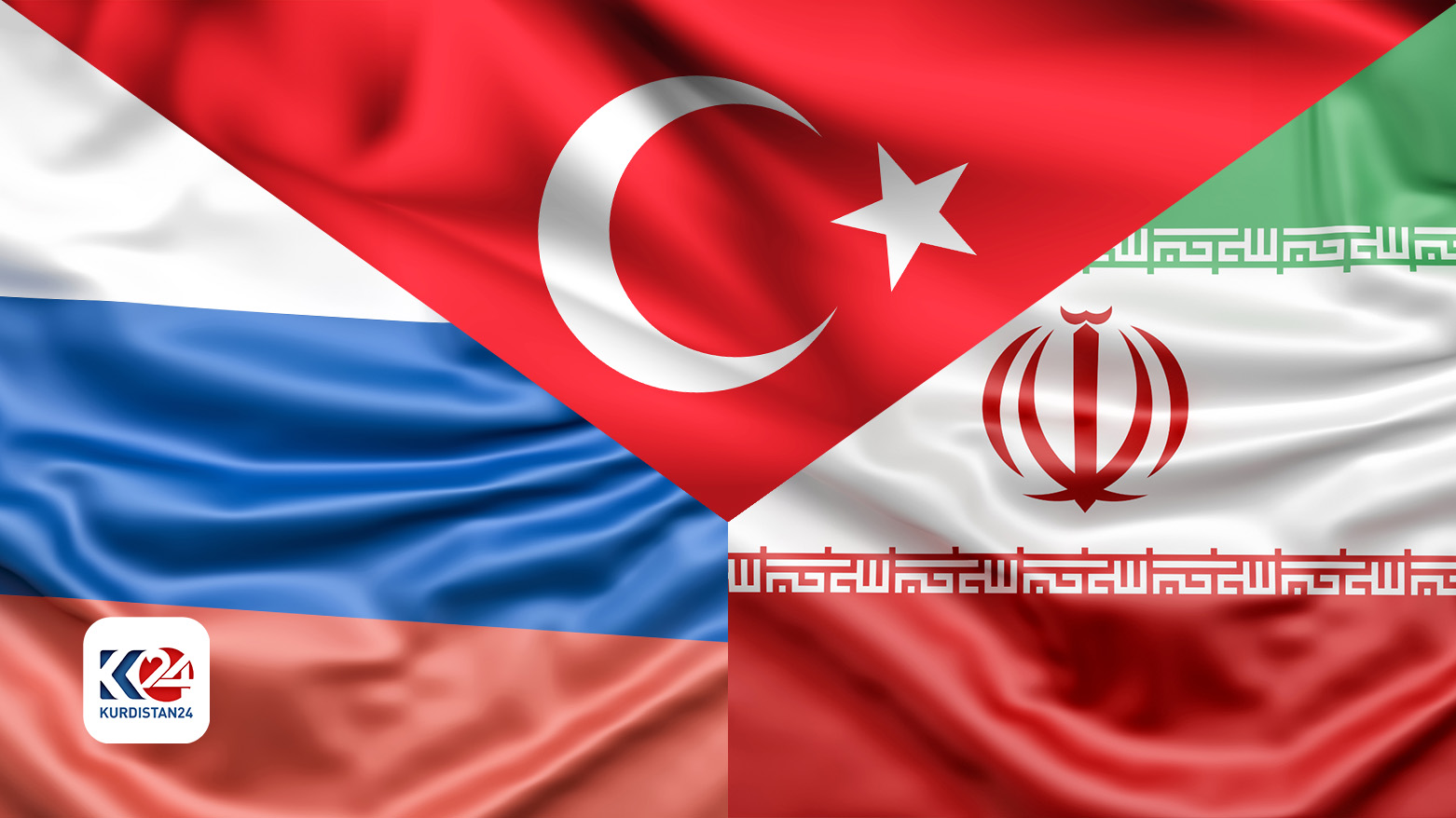Russia, Turkey, Iran gather in Qatar to discuss Syria's shifting power dynamics
The trio has been heavily involved in Syria, and ever since the Astana peace talks began in 2017 to end the civil war, their influence has grown. However, throughout these years, they have backed opposite sides at times.

Dec. 7, 2024
ERBIL (Kurdistan24) – The Foreign Ministers of Russia, Turkey, and Iran are set to meet in Doha on Saturday to discuss the developments in Syria and try to find a solution to the renewed conflicts between the opposition and pro-government forces.
The trio has been heavily involved in Syria, and ever since the Astana peace talks began in 2017 to end the civil war, their influence has grown. However, throughout these years, they have backed opposite sides at times.
Both Russia and Iran have backed the Syrian government and President Bashar al-Assad militarily. Meanwhile, Turkey has indirectly supported various rebel groups.
Turkey’s position on the current situation became increasingly clear when on Friday President Recep Tayyip Erdogan expressly stated that he wished for the opposition’s march to continue.
Experts believe that the change in the balance of power in Syria represents both risk and opportunity.
Turkey shares a long 900-kilometer border with Syria, and this, at least geographically speaking, puts Turkey as the most closely linked country to the Syrian situation compared to both Iran and Russia.
“The precise role of Turkey in this situation remains a topic of speculation. But what is clear is that Tukey gave its green light to the offensive without being directly involved,” Omer Ozkizilicik, an Atlantic Council researcher in Ankara, told Agence-France Presse.
Regardless of complicated relations between Ankara and Hayat Tahrir al-Sham which is leading the current offensive southwards to Damascus, Ozkizilicik added that the Turkish government was clearly aware of the preparations.
Gonul Tol, Turkey’s director of the Middle East Institute in Washington, told Agence-France Presse, “The most important thing for Turkey is stability in Syria and a safe area to which Syrian refugees can return.”
The Turkish government, as Tol explained, does not necessarily insist on full removal of Assad’s regime, fearing the prospect of a Kurdish-held area on its southern borders. To Turkey, the full removal of Assad’s regime could have two possible outcomes, both undesirable to Ankara: a strengthened Kurdish territory in Syria, or the re-emergence of ISIS.
Perhaps, it was the same motive to withhold such prospects from ever materializing that prompted Ankara to bring Damascus to the negotiation table.
However, the Syrian President repeatedly rejected Erdogan’s attempts to meet, insisting full withdrawal of Turkish troops first.
Tol told AFP that this stance by Bashar al-Assad even irritated the Russian President Vladimir Putin.
Perhaps the current situation that the Syrian President finds himself in is of his own making.
“Assad managed to piss everyone off, including Iranians and Russians and Turks, everyone, because he has been dragging his feet on efforts to reach a deal with both Turkey and others,” Tol explained to AFP.
She further explained that both Turkey and Russia might propose a transition government without Assad but with some combined elements of the government and the opposition.
Iran has continued to support Bashar al-Assad. However, the aftermath of the death of Hezbollah’s leader Hassan Nasrallah, and the lack of support by Assad might have caused Iran to rethink its stance.
As revealed by a New York Times report, Iran has already begun the evacuation of its military commanders and personnel from Syria. This, as reported by the New York Times, has started since Friday.
Experts believe that the meeting in Doha, bringing together Russia’s Sergei Lavrov, Turkey’s Hakan Fidan, and Iran’s Abbas Araghchi, could signal an end to the Assad regime.
At the end of the day, any potential removal of the government in Syria could create a power vacuum.